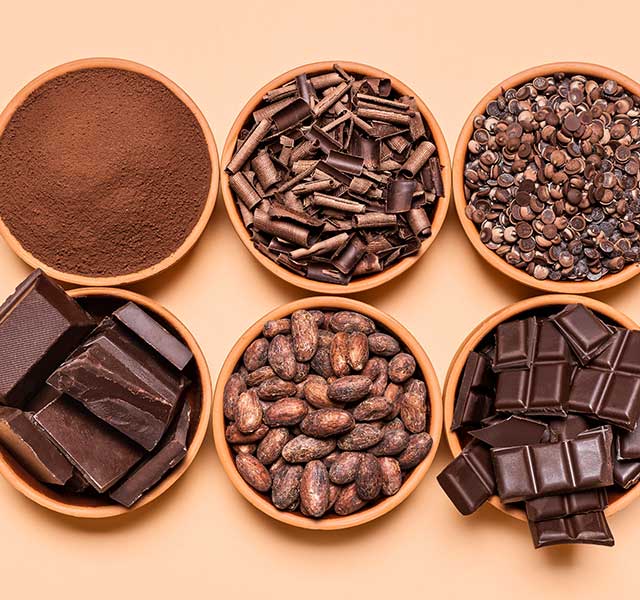Dark chocolate has plenty of health benefits: it contains cancer-protective antioxidants, it’s heart healthy, it may improve brain function and blood flow—and it’s usually lower in sugar than milk and white chocolate.
But now there is a caveat. A recent study revealed several popular brands of dark chocolate contain lead and cadmium—and some violate the daily amounts allowed by California’s Proposition 65, which requires warning labels on products that contain harmful chemicals. (The Food & Drug Administration also has guidance on “safe” amounts of unintentional lead ingestion; just recently, they lowered the amount of what’s considered safe in babies and young children.)
The Harmful Effects Of Lead & Cadmium
While dark chocolate is currently in the spotlight, lead has also been found in canned baby foods, cereals, even vegetables like sweet potatoes, carrots and spinach. (Arsenic—another naturally occurring element that’s toxic to humans in high amounts—has also been found in rice.)
“Lead, cadmium, arsenic—these are all naturally occurring elements that are found in the soil where certain foods grow,” says Allegra Picano, RDN, a registered dietitian at Henry Ford Health. “These foods most likely get contaminated during the growing process—or during the drying process, where they may be contaminated by dust.”
Ingesting too much lead can cause long-term health damage. In adults, it increases the risk of high blood pressure and kidney damage. In pregnant women, it can cause miscarriage, stillbirth, premature birth and low birth weight. It is especially toxic to children, as it can stunt growth and affect brain and nervous system development. Cadmium increases the risk of lung cancer, birth defects, kidney disease and reproductive harm.
How To Limit Your Heavy Metal Exposure
So what do we do when it seems like even healthy foods are bad for us? “Really, the concern comes from having way too much—and for special populations like pregnant women and children,” says Picano.
She shares ways to limit your heavy metal exposure.
- Eat dark chocolate in moderation. “One ounce of dark chocolate per day is generally considered safe, which is about three squares,” says Picano. “If you opt for the dark chocolate bars that were found to contain lower levels of lead, that’s even better.” As for pregnant women, a little dark chocolate once in a while won’t hurt you. “At the end of the day, dark chocolate still has a lot of health benefits and I wouldn’t want people to totally give these up,” she says.
- Vary your diet. While lead has been found in sweet potatoes, carrots and spinach, it doesn’t mean you should cut these foods out of your diet altogether. “Eat a diverse array of fruits and vegetables,” says Picano. “That way, you’re not only getting a variety of micronutrients, but you’re also getting a variety of foods grown in different soils.”
- Don’t worry too much about brown rice. “In order to be concerned about arsenic poisoning, you’d have to be eating at least 1 cup of brown for several days a week,” says Picano. “For some, that may be a concern. But the key again is to have a varied diet and not eat the same thing every day or multiple times a day. You can also reduce your risk of arsenic poising by washing your rice with clean water before cooking it.”
- Up your iron and calcium intake. Iron and calcium help prevent your body from absorbing lead. Eat a diet rich in iron and calcium and make sure your kids do, too. Red meat, beans and spinach are rich in iron; the best sources of calcium include milk, cheese and yogurt.
- Vary your baby’s food. “Focus more on fruits, vegetables, and multigrain cereals for your baby than rice cereals, because they typically contain less lead,” says Picano.
And a bit of good news? With these studies coming to light—along with the FDA’s updated guidelines for children and babies—many companies will be trying to improve their practices to limit the amount of lead and other chemicals in their foods.
To find a registered dietitian at Henry Ford, call 1-855-434-5483 or visit henryford.com/nutrition.
Allegra Picano is a registered dietitian nutritionist for the Henry Ford Center for Health Promotion and Disease Prevention.



